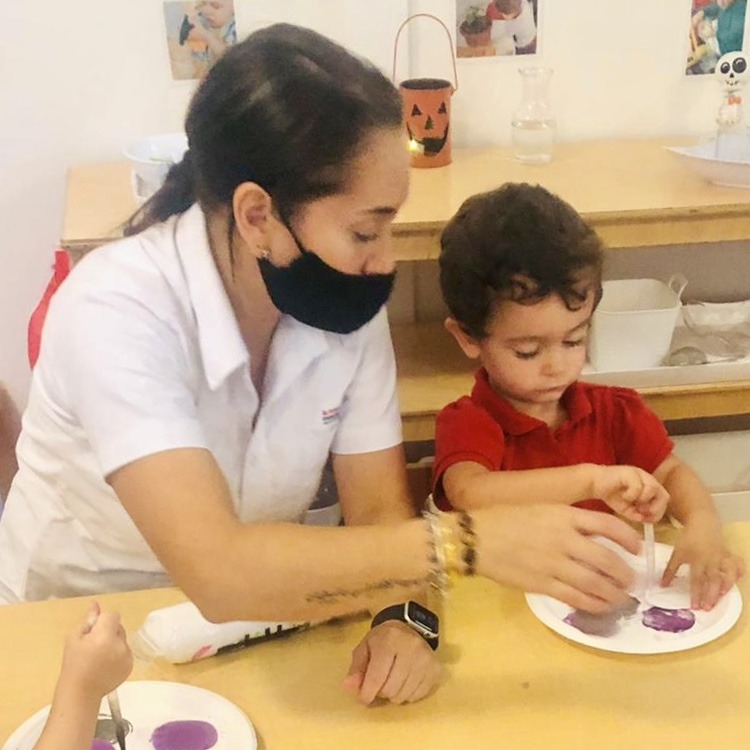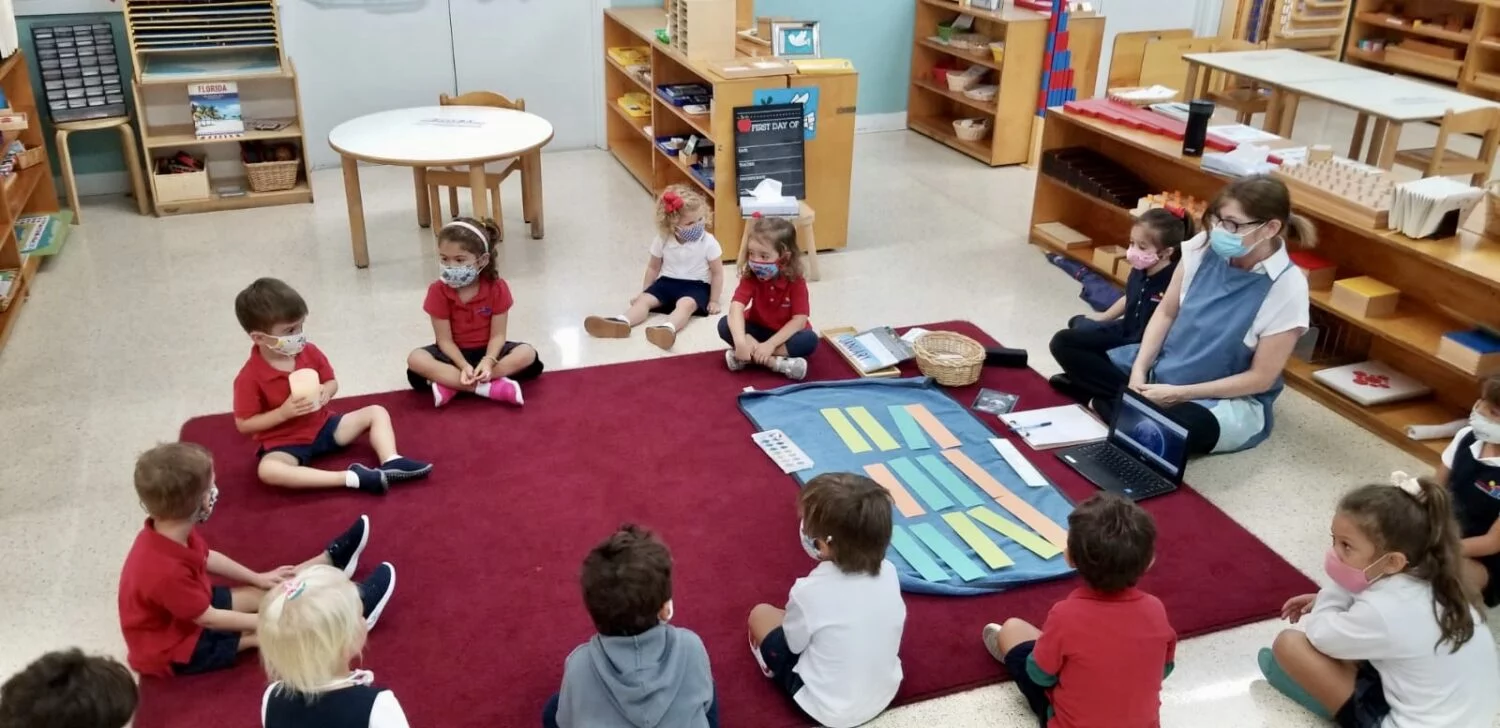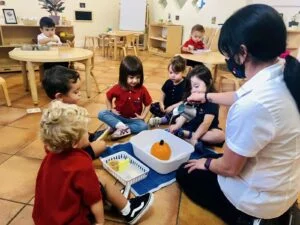“The greatest sign of success for a teacher is to be able to say, ‘The children are now working as if I did not exist.’” – Dr. Maria Montessori
One of the most special things about Montessori education is the relationship between the teacher and the student. 
Although Montessori students have the freedom to pursue their own academic progress, classroom instructors are a crucial element in this process. They provide the tools for learning and the pathway to information and discovery.
At La Prima Casa Montessori, we take pride in the leadership our teachers provide and the relationships they build with the students.
Here are some of the things that make a Montessori teacher special and set them aside from traditional educators:
1. Montessori teachers act as ‘guides’ for their students.
Unlike in traditional classrooms, it is the student, not the teacher, that is the focal point of the Montessori classroom. Montessori teacher’s mission is to select the kind of lessons for the student that will attract their attention, prompting them to settle down and concentrate. This is why Montessori teachers are often referred to as “guides.”
2. Montessori teachers work with students in groups. 
Since most Montessori classrooms are multiage, the notion of a traditional school teacher doesn’t work. A lecture appropriate for one student could be too advanced or too simple for another. Therefore, Montessori instructors conduct their classrooms differently than traditional ones. They don’t stand in front of the students and lecture them on a particular topic. Instead, they can usually be found working with students in groups, helping guide them to their learning goals.
3. Montessori teachers act like scientists who study their students.
As part of her educational vision, Dr. Montessori viewed the role of an instructor to be somewhat like a scientist. Montessori teachers are in constant observation of their students, making records of what they have learned and where they need more support.
4. Montessori teachers build bonds with their students that last for years.
Since Montessori classrooms are multi-aged, students will often stay with a teacher for more than one year. This helps build a stronger bond between students and their teachers, which can create many educational benefits. Since the teacher becomes familiar with the students’ likes, dislikes, habits and motivations, they are able to better guide the students through their journey of learning.
5. Montessori teachers build character in their students.
One of the missions of the Montessori Method isn’t just to educate a student, but to also build character. A key element of instilling character is making “grace and courtesy” a core part of the Montessori curriculum. Reinforcing these lessons of gratitude requires role models, and Montessori teachers provides an ever-present example to their students on how to live by these principles.
Want to learn more about what makes a Montessori teacher unique? We invite you to come and meet the teachers and administrators at La Prima Casa Montessori. We’d be excited to talk with you more about what makes a Montessori education so special and offer you a free school tour. Please call us to schedule your visit: (305) 854-8001.


